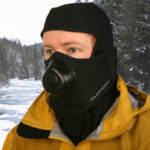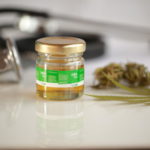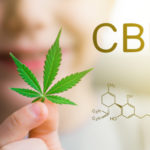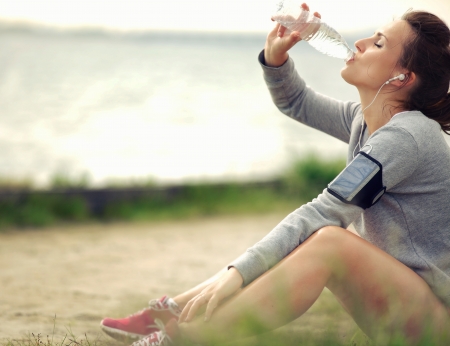As you begin your fitness resolutions for 2018, you need to think about the most important aspect of your health, fitness, and training in the gym and out! Water comprises the major portion of our bodies and serves as the medium for most chemical and exchange reactions with our physiology and bodily functions. The average adult consumes about one quart of water per day from various liquids: coffee, tea, water, fruit juices and soda. The foods we eat also supply another quart since they contain about 20 percent water. We also get about 1 to 2 cups of water as a byproduct of our metabolism. As a result, we generally use about 2 quarts of water per day. From this, about 1 ½ quarts is used to produce urine. The remainder is lost through the lungs, feces, and skin. When water levels in the body fall by 1 percent to 2 percent, the brain triggers a thirst signal. Athletes, the very active, sick persons, and those in less humid climates generally require more water than the average 2 quarts (1.9 Liters) per day.
Water always seems to be at the bottom of the priority list for many, especially when exercising. You can never have too much of it while exercising intensely, relatively speaking. A reduced water intake thickens the blood and thus, restrains nutrient flow to vital organs and muscles. Insufficient water supplies interfere with temperature regulation, energy production, fat and food metabolism, digestive processes, muscle and joint lubrication, resistance to diseases and glycogen stores. Water should be drunk slowly throughout the day and should be as cool as possible. Water that is very cold, such as that with crushed ice or near freezing, is more refreshing and will tempt you to drink it rather than soda, coffee, or other drinks that are considered diuretics, which dehydrate the body causing frequent urination.
 Those who exercise vigorously generate more body heat. To maintain the body’s ability to regulate its internal temperature and keep cool, water is necessary. Unless the heat that is built up is quickly dissipated, heat exhaustion and even heat stroke can ensue. Almost all heat lost by the body is through evaporation of sweat from the skin. In prolonged exercises, this loss can range from 2 to 3 cups of water per hour, depending on climate. If you are in a climate that has greater than 75 percent humidity, sweat loss becomes inefficient.
Those who exercise vigorously generate more body heat. To maintain the body’s ability to regulate its internal temperature and keep cool, water is necessary. Unless the heat that is built up is quickly dissipated, heat exhaustion and even heat stroke can ensue. Almost all heat lost by the body is through evaporation of sweat from the skin. In prolonged exercises, this loss can range from 2 to 3 cups of water per hour, depending on climate. If you are in a climate that has greater than 75 percent humidity, sweat loss becomes inefficient.
Let’s look at some basic statistics. A suited football player in hot weather can lose 2 percent of body weight in 30 minutes. For the average size player, this would amount to about 4 pounds of fluid or 2 cups of water! A marathon runner can lose 6 percent to 10 percent of body weight during a race. Martial artists in competition have lost between 2 percent to 5 percent during competition events and about 3 percent during basic exercise days. A golfer on a hot summer day may lose 1 percent to 4 percent during an 18-hole game. During exercise, look for signs of water loss: profuse sweating, headache, dizziness, nausea, vomiting, muscle weakness, flushed skin, and other characteristics. Look for rapid body weight loss (3 percent or more) and replenish fluids on a regular basis. Fluid intake during exercise should compensate for the amount of water loss anticipated.
Tip: When exercising anticipate how much water you will need, put this amount in a water bottle, and drink it throughout your workout so that the water is finished by the end of your exercise period. Add ice if you can.
Two Ways to Determine Water Needs
There a couple of easy ways to determine how much water you need during or after your exercise.
Method I:
If you have no experience, try this: (1) For exercise times lasting 60 to 90 minutes, drink fluid freely until about 2 hours before your exercise, this includes any type beverage except alcohol, caffeine, or high sugar drinks (these cause dehydration). (2) Twenty to thirty minutes prior to your exercise, drink 1 to 2 cups of fluids. These extra fluids will replace what you may lose. (3) If you have begun your exercise, which will last longer than 30 minutes, consume about ½ to 1 cup of fluids each 20 minutes—about 4 cups per hour. Do not wait until you feel thirsty, especially on very hot days! (4) After your exercise program or competition, drink about 2 cups of fluid for each pound of body weight loss.
For most activities, I recommend the coolest water you can get rather than carbohydrate drinks such as Gatorade. These should be reserved for very high intensity, long duration events, i.e., soccer, football, marathon, and so on. The key is not to drink too much or too little water during your exercise time. Experiment for best individual results. At the end of your exercise program, drink about 50 to 100 grams of carbohydrates from a sport drink or fruit juice. As an example, Gatorade has 14 grams of carbs per 8-ounce glass whereas grape juice has 32 grams. This will ensure replacement of necessary electrolytes that have been lost. If you work out all day, as in a golf event, or when you train more than once per day, i.e., strength in the morning, golf in the afternoon, electrolyte replacement is very important.
Tip: Drink 4 ounces of purple grape juice (16 grams of carbs) about 30 minutes prior to exercise.
Method II:
This method is for those who like to be more precise. Go to the gym and perform your favorite exercise(s) for 30 minutes. Weigh yourself before and after the 30-minute period. Any weight lost should be the amount of water you need to drink to replenish water that was lost. For every pound of weight lost, you should drink 2 cups of water to restore the weight. Replacing more than 20 to 75 percent of sweat loss during any exercise may be uncomfortable. The important point is to keep track of your individual needs and replenish as necessary. Once you have an idea of what you need through exploring the process, you will know what is required and it will become a good habit. Portions of this story were extracted from Nutrition Made Simple.







